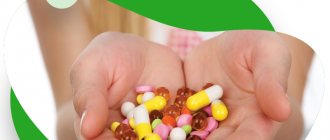Is there a maximum water requirement? Why is water dangerous in large quantities? Let's figure it out together with a nutritionist.
There is no doubt that the human body needs water for the full functioning of all organs. Sufficient consumption of it promotes good functioning of the digestive, circulatory and nervous systems. However, can too much water have a negative impact on your health?
Lidiya Kvashnina
nutritionist
Water – friend or foe? The answer to this question is not as clear-cut as it might seem.
What is water for?
A person can live without food for several weeks, but without water - only a few days. On average, we are 60% water. It is the basis of blood, digestive juices, urine and sweat. Water is found in large quantities in muscles, adipose tissue, and the brain. Even bones are almost a quarter made of water.
We cannot store water and are losing it daily. Thus, up to 200 grams of water leaves the body daily in stool, from 500 to 1500 g in urine, up to 500 ml through the skin, and up to 400 ml through breathing. Water loss and need for it are affected by nutrition, air humidity and temperature, respiratory rate, metabolic rate, and activity level.
Water does many important things in the body:
- transports hormones, nutrients, oxygen to cells;
- acts as a solvent, making substances digestible;
- removes waste metabolic products from cells and from the body;
- an important molecule in most chemical reactions in the body;
- protects joints by acting as a lubricant and protective cushion;
- regulates body temperature through sweating;
- regulates blood pressure;
- Serves as a shock absorber inside the eye and spinal cord.
If the body loses more water than it takes in, varying degrees of dehydration occur. Among the symptoms:
- extreme thirst
- dry skin and mucous membranes (mouth, nose, eyes)
- fatigue and weakness
- decreased concentration
- fast fatiguability
- increase in body temperature
- headache
Daily value: is it easy to calculate?
Finding out how much water a person should drink per day is not at all difficult. But, before making calculations, it is worth considering that there are factors that can affect the result. On average, the volume of clean drinking water - without coffee, tea, soup, sweet soda - should be 1/2 of the norm. Existing calculation formulas will help you clarify how much water a person needs per day:
- a simple way is to multiply each kilogram of weight by 40 ml;
- taking into account gender - 30 ml for women and 40 ml for men per 1 kg;
- for every 1000 calories of food there should be 1000 ml of liquid;
- As atmospheric temperatures rise, consumption rates double.
A simple rule will help you find out how much water a person who is actively working physically or playing sports should drink per day. You need to replenish any fluid losses during training by multiplying them by 1.5, and drink 50 ml every 30 minutes during training.
How much water should you drink per day?
The amount of water per day causes a lot of controversy. Some say that most people don't need to worry about anything because thirst is a reliable defense mechanism against dehydration. Others believe that clean water should be drunk in large quantities - almost up to 4 liters per day, not taking into account the water in foods, teas, juices and other liquids.
Well, everyone knows the “standard” recommendation: two liters of water a day or 8 glasses. Although there is no scientific evidence for this claim. This advice does not take into account a person’s gender, height, activity level, or environmental conditions in which he lives and trains.
An article in the Journal of the American Dietetics Association states:
To maintain adequate body water, the average non-exercising man should drink at least 2,900 ml of fluid per day, and the average non-exercising woman should drink at least 2,200 ml, including liquids in foods. Solid foods provide approximately 500-1000 ml of water (second figure for a 2500-3000 calorie meal). Another 250 ml is produced by the body itself: water here is a by-product of energy production.
An easy way to find out your water intake
The easiest way to tell if you're drinking enough is to look at the color of your urine and the number of times you visit the toilet per day. There's even a color chart that anyone concerned about dehydration can refer to. Its different options can be easily Googled using the query urine color chart:
The kidneys excrete metabolic products in the urine. If little water enters the body, it becomes more concentrated and saturated with various waste products, darkens and acquires a strong odor.
If enough water enters the body, then every time you visit the toilet (and the norm is at least five times, but no more than ten), the urine will be transparent, light straw in color, and logically darker in the morning.
This is an easy way to monitor your hydration levels, but it doesn't work if you're taking a multivitamin. Thus, riboflavin (vitamin B2) turns urine bright yellow. Also, the test cannot be indicative if there are kidney or biliary tract diseases, diabetes and some other diseases.
In addition, Lyle MacDonald on his forum gives similar advice on water intake: have five clear urinations per day throughout the day, with two of them post-workout.
When do you need more water?
- On a high protein diet: For 150 grams of protein per day, that's about an extra liter of water.
- On a high fiber diet - from 20-30 grams per day.
- During pregnancy or breastfeeding - an additional 750-1000 ml per day.
- Before, during and after training.
- In the heat, during active sweating.
You need to drink water - 5 reasons
When analyzing the reasons when it is necessary to consume large amounts of liquid, it is worth thinking about the benefits. Only informed decisions will allow you to maintain health and avoid harmful consequences. What looks affirming and believable:
A vital necessity
If you don't drink at all for 4 days, you can lose your life. Water is primary for the functioning of the entire body. It ensures proper functioning of the brain, cardiovascular and excretory systems. Flushes away harmful compounds and toxic substances. Saliva is also moisture and requires the necessary replenishment to produce digestive compounds. Blood also needs water for good circulation.
Maintaining a slim figure
There are no calories in water, and for this reason it is popular in getting rid of extra pounds. Essentially, drinking a glass of liquid tricks the brain. Receptors and nerves transmit information from the stomach that it is full. For some time, the feeling of hunger will subside. As a result, the amount of food eaten decreases and the length of time between meals increases. Drinking cold water can speed up metabolic processes. To generate heat for the body, you need to take calories from fat deposits.
3. Skin turgor
The skin is the most voluminous human organ, with a high moisture content. Dehydration is detrimental to the epidermis. The surface layers become dry, flaccid, with many wrinkles. This is especially significant for women. Drinking clean, fresh water guarantees beauty, youth, and healthy skin. In addition, it is necessary to use protective creams to avoid rapid evaporation of liquid from the upper layers of the skin.
Keeping muscles toned
Human muscles are tissues that are in dire need of sufficient water supply. This allows them to work at full capacity and avoid various injuries. If there is insufficient supply of fluid to the internal organs, it begins to be compensated from muscle tissue. This situation should concern people involved in sports. They should constantly replenish the water reserves of their organs.
Proper bowel function
Another important reason why you need to drink raw water is the healthy functioning of the gastrointestinal tract. Drinking liquid in the morning causes the intestinal walls to contract intensively, promoting the bolus. As a result, constipation, bloating and other problems disappear. You can drink mineral water after consulting your doctor. He will help you choose a brand based on its composition and determine the dosage.
Should you count water in other drinks?
Juices, fruit drinks, soda
There is often an opinion that only pure water is considered water, that the body does not absorb water in which something is dissolved. But this is not so: the water contained in juices, fruit drinks, milk, etc. is the same water. The only problem with these drinks is their high calorie content due to dissolved sugar and very poor satiety. So if a person controls calories, juices and fruit drinks cannot be the basis of the incoming liquid.
Tea and coffee
One myth: Caffeinated drinks don't count because caffeine is a diuretic. Research shows that this is not true: the diuretic effect of these drinks is very weak.
But because of the same caffeine, coffee and tea also cannot be the basis of the liquid entering the body. Caffeine is not harmful in moderation - up to 500 mg per day (in one standard cup of freshly brewed coffee - about 100 mg). But it can cause many problems if it is in excess - the effect of dependence, increased blood pressure, tachycardia, insomnia.
Thus, during the day you can drink sweet drinks in very small quantities and it is better to choose freshly squeezed juices and smoothies to get vitamins and fiber. Add a few cups of tea or coffee to this, and leave the rest as pure water.
Diet and daily routine
One of the most important aspects of caring for an elderly person suffering from dementia is organizing a clear and established daily routine. The patient should not be allowed to sleep too long in the morning. An alarm clock will help you get up at the same time. The specific time of waking up also determines what time the patient goes to bed in the evening. If he wakes up at 6-7 am, he will need to go to bed no later than 10 pm. The night will pass peacefully, and relatives will have the opportunity to sleep. You also need to go for a walk at the same time.
Despite the unstable mental state, the patient does not need to be isolated from society. Communication with others, especially at an early stage, will help delay and slightly delay the development of the disease. If possible, you can ensure that you attend hobby groups or clubs. Mental stress can prevent the rapid death of cells.
Caring for a person with dementia at home involves changing their diet. You will have to exclude fried, spicy, smoked foods from your diet, focusing on boiled or steamed foods. Fruits, nuts, fish and seafood are excellent natural antioxidants; they are extremely useful for all brain diseases and nervous disorders.
Is it possible to drink too much water?
Drinking too much water leads to water intoxication and a related problem - a decrease in the concentration of sodium and other electrolytes in the body. This usually happens when a severely dehydrated person drinks too much water without the electrolytes (sodium, potassium, etc.) dissolved in it, and especially in one gulp.
Electrolytes are involved in many body functions. The muscles, heart, and nervous system are controlled by electrical impulses, and electrolytes transmit them. Large loss of electrolytes - weakness, paralysis, convulsions.
But this is not what happens in everyday life, unless you drink gallons of water in one gulp. A healthy adult's kidneys can process up to fifteen liters of water per day. But, on average, recommendations are given to drink no more than a liter of water per hour.
What happens if you drink more than normal?
Drinking too much water can cause low levels of sodium in the blood, which maintains the balance between fluid inside and outside cells. When sodium levels drop, water moves out and causes cells to swell. This can cause headaches and nausea, and in rare cases lead to cerebral swelling and coma. This condition is called overhydration or water poisoning.
However, there is no need to worry too much. For this to happen, a person must drink over 4 liters in a short period of time, without going to the toilet and sweating less than usual.
This information is rather relevant for professional athletes. Thus, of the 488 participants in the 2002 Boston Marathon, 13% had symptoms of hyponatremia (a consequence of overhydration), and 0.06% had critical hyponatremia.
Photo: unsplash.com/@da_sikka_x
Ordinary people need to understand that consuming large amounts of water is an additional burden for the kidneys, which cleanse about 1,700 liters of blood from toxins per day. According to a 2013 study, the kidneys can excrete no more than 0.8-1 liters per hour. The authors report that symptoms of overhydration develop if a person drinks 3-4 liters of water in a short period, but they do not give a precise estimate of time. One experiment shows that it is harmful to drink more than 2 liters of water per hour, another - more than 5 liters over several hours.
Consequences of excess water in the body:
- rapid weight gain;
- swelling, including cellulite;
- increased blood pressure;
- increased sweating;
- disruption of the functioning of internal organs such as the kidneys, heart and lungs.
How water affects health
Water is involved in all biochemical processes of the body, such as:
- metabolism,
- digestion,
- hematopoiesis,
- regulation of blood pressure,
- thermoregulation,
- removal of toxins.
Disruption of these processes affects the condition of hair, skin, nails, as well as the functioning of all body systems, the musculoskeletal system, and the brain. No wonder doctors believe that dehydration can cause confusion and headaches. After all, the human brain is 75% fluid. It's the same with blood. The less water in our body, the thicker the blood and the higher the pressure. That is why hypertensive patients need to monitor their water balance especially carefully. When the body feels a lack of water, it begins to intensively produce histamine, a hormone responsible for the immune response in a situation that is alarming for the body. However, an excess of histamine activates not only the immune system, but also allergies. This is why maintaining a drinking regime for allergy sufferers is especially important. Water dissolves and delivers a variety of nutrients to tissues. Without water, normal functioning of joints and muscles is impossible. With its deficiency, the likelihood of arthrosis and osteochondrosis sharply increases due to the constant wear and tear of fragile cartilage tissue. People suffering from diabetes must control their blood sugar. Drinking a glass of water instead of juice or a sugary drink helps them keep their sugar levels under control. While drinks containing sugar can cause a sharp rise in its level in the blood and increase thirst.
Dehydration
When dehydrated, the body draws water from cells to maintain its most important functions. As a result, cell functionality is impaired. The blood thickens and moves more slowly, and accordingly, oxygen arrives with delays.
Signs that indicate you are not drinking enough water:
- feeling of thirst and dry mouth;
- dark yellow urine;
- peeling of the skin, cracks on it;
- headache;
- drowsiness and lethargy;
- cardiopalmus.
Unfortunately, at the very beginning, these signs may appear separately, not give an overall picture of the problem, or be attributed to the manifestations of other diseases.
Excessive fluid intake
Healthy adult kidneys can process up to one liter of water per hour. Anything more than this can be considered harmful and even dangerous. In ordinary life this practically never happens. However, under a number of circumstances this is possible, as a result of which a person may drink an excessive amount of water.
Excess water, that is, drinking more than 4-5 liters of water per day, is fraught with the following consequences:
- increased kidney function;
- increased protein breakdown;
- increased sweating;
- leaching of the necessary salts and disruption of the salt balance;
- diluting gastric juice and slowing digestion.
In addition, people with liver and kidney diseases should be more careful when drinking water. Excessive intake of liquids for them can be hazardous to health. In this matter, they need to strictly adhere to the doctor’s recommendations.
Should I limit my consumption?
How to find out how much water a person needs to drink per day if we are talking about a situation where there are health restrictions? For example, with heart and kidney diseases, people have to limit themselves to minimal amounts of fluid intake. It is also worth paying attention to situations where, after drinking in the evening, swelling forms in the morning. In most cases, people try to limit the amount of water they drink. Whereas the root of the problems lies in something completely different. And you need to clarify not how much water a person needs to drink per day in order to achieve the absence of edema, but simply reduce salt intake. It is this that forms fluid stagnation in the tissues and prevents its normal outflow.
When does water become hazardous to health? Only in cases where there are medical contraindications for its ingestion in large quantities. In other situations, you can provide opportunities for healing the body and replenish the necessary fluid balance by simply following the recommendations established by WHO.
How can you check your water balance?
Photo: Pexels.com
You can measure how many glasses of water and other liquids you drink throughout the day. If you drink at least three to four glasses of clean water a day, eat fruits and vegetables, then you meet your daily requirement. You can also take a number of tests: a general blood test to check the balance of minerals in the blood - a lack of potassium, sodium and chlorine indicates a violation of the water-salt balance. This also includes bioimpedance analysis and urine analysis.
What will happen to the body if you don’t drink the daily norm?
Photo: Pexels.com
A person may not notice for a long time that he lacks fluid. Some people claim that they feel good without drinking a single glass a day. But after a while it will definitely affect your health. If there is not enough fluid in the body, the sweating system, which is responsible for detoxification, does not work properly. As a result, harmful substances accumulate in the body.
Why is it important to stay hydrated?
Photo: Pexels.com
Water balance affects everything in our body: blood pressure, normal functioning of the gastrointestinal tract, the condition of hair, nails and general well-being. Impaired water balance also affects the condition of the skin: this can be noticed by an unhealthy complexion, increased dryness, peeling, and clogged pores. Lack of water in the body leads to increased production of sebaceous glands. Therefore, if your hair quickly becomes oily, this may indicate a lack of water in the body.











